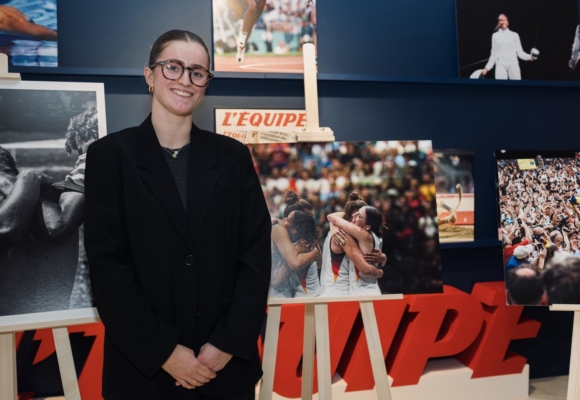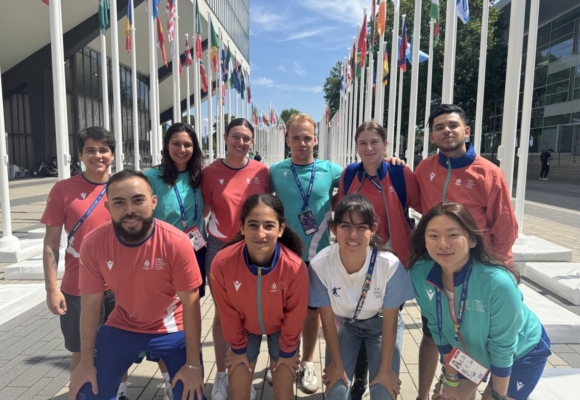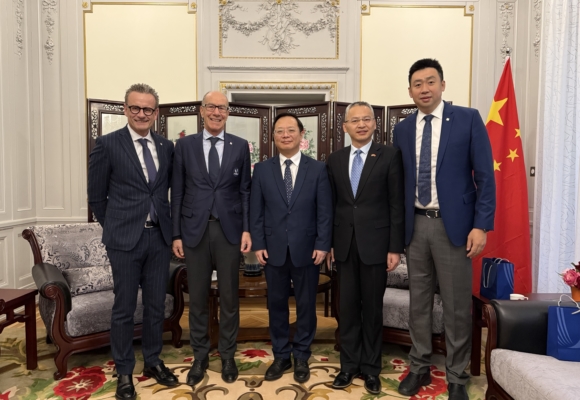Take a trip back through 60 years of Universiade history. The third stop on this FISU history tour takes us to the Bulgarian hotbed of university studies and sport – Sofia – for Summer Universiade 1961.
What requires 55kg of caviar, 2,700kg of chocolate and 9,200kg of paprika to prepare? The 1961 Sofia Universiade, apparently.
 That’s how much the 1,270 athletes and 357 officials consumed during the 10 days of competition in the Bulgarian capital. It appears to have been the perfect fuel for the athletes, too, who went on to set two world and 20 Universiade records in athletics and a further 12 Universiade records in swimming.
That’s how much the 1,270 athletes and 357 officials consumed during the 10 days of competition in the Bulgarian capital. It appears to have been the perfect fuel for the athletes, too, who went on to set two world and 20 Universiade records in athletics and a further 12 Universiade records in swimming.
The two world records were set by Soviet high jumper Valery Brumel, who cleared the bar at 2m25, and his compatriot Tamara Press, with a discuss toss of 58.06 metres.
Brumel would go on to become one of the best high jumpers in the history of the sport, breaking the outdoor world record six times and the indoor record twice. He won his second Universiade gold medal two years later in Porto Alegre and added another gold at the Olympic Games Tokyo 1964. His glittering career came to a tragic halt in 1965 when he almost lost a leg in a motorcycle accident.
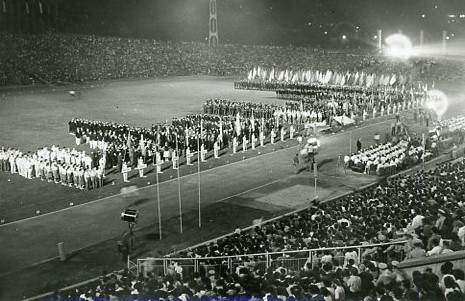 A standing room audience was on hand in Bulgaria for the country’s first hosting of the Universiade. Following the Sofia 1961 Summer Universiade, the city and country would host multiple editions of the event.
A standing room audience was on hand in Bulgaria for the country’s first hosting of the Universiade. Following the Sofia 1961 Summer Universiade, the city and country would host multiple editions of the event.
Press also went on to win another Universiade gold in Porto Alegre as well as two Olympic golds (discus and shot put) at Tokyo 1964. Between 1959 and 1965 she set 11 world records: five in shot put and six in discus. Together with her sister, Irina (who won gold in the 100m hurdles and silver in shot put in Sofia), the Western media sarcastically referred to them the “Press Brothers” as debate about their gender grew, which was heightened further by their abrupt retirement from sport only a few weeks prior to the introduction of compulsory gender testing in 1966.
The sports programme expanded from 7 sports in Torino to 9 sports in Sofia with the inclusion of diving and gymnastics.
These were the first Universiade hosted under endorsement of the International Olympic Committee (IOC), which officially recognized FISU two months earlier at its 58th Session in Athens. The Sofia Universiade also saw the election of Primo Nebiolo as FISU president, a position he held until 1999.
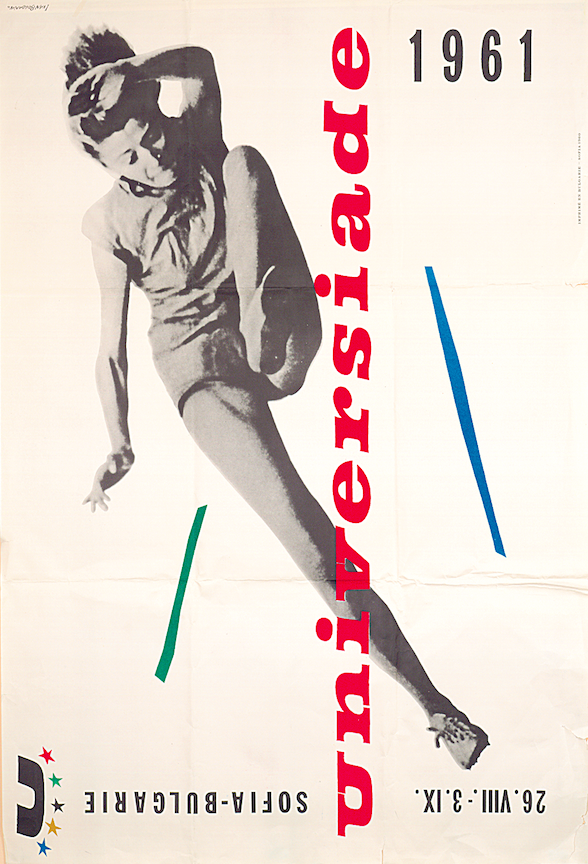 Official event post of the second edition of the Summer Universiade from Sofia
Official event post of the second edition of the Summer Universiade from Sofia
